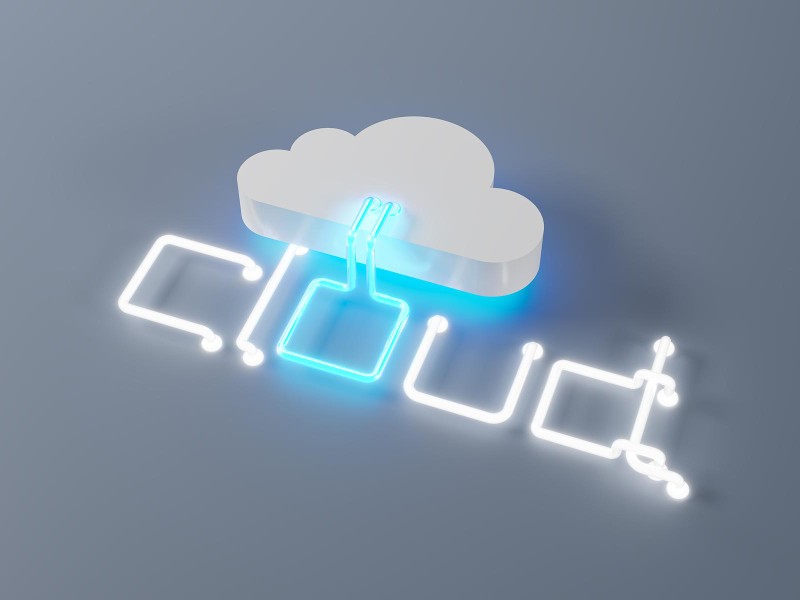Blog
Securing Your ERP: On-Premise vs. Cloud Deployments

In the digital age, businesses rely on robust enterprise resource planning (ERP) systems to manage their operations effectively. However, the choice between on-premise and cloud ERP deployments raises concerns about security. This blog aims to address those concerns by exploring the security concepts of on-premise ERP deployments versus cloud ERP deployments. We will emphasize why cloud deployments, especially when leveraging Azure Security Measures and compliance standards, offer enhanced security and peace of mind for businesses, dispelling any fears one may have about the cloud.
Understanding On-Premise ERP Security:
On-premise ERP deployments involve hosting the software and data within the company's physical infrastructure. This setup grants organizations direct control over their data and infrastructure. However, it also places the burden of security entirely on the organization.
Here are some considerations regarding on-premise ERP security:
1. Physical Security:
Organizations must ensure the physical security of their servers, data centers, and network infrastructure. This includes implementing measures such as access controls, surveillance systems, and environmental controls to safeguard against physical threats.
2. Patching and Updates:
Regular patching and updates are critical to address security vulnerabilities in the ERP system and underlying infrastructure. Organizations need to stay vigilant and ensure timely application of security patches to mitigate potential risks.
3. Disaster Recovery and Backup:
Establishing robust disaster recovery and backup mechanisms is essential to protect against data loss and ensure business continuity. This involves implementing off-site backups and disaster recovery plans to quickly restore operations in the event of a breach or disaster.
4. Cloud ERP Deployments and Enhanced Security:
Cloud ERP deployments, on the other hand, offer several security advantages over on-premise deployments. Microsoft Azure, the cloud platform powering Dynamics 365 ERP solutions, prioritizes security and compliance.
Let's explore the reasons why cloud deployments are more secure:
1. Physical Security and Redundancy:
Azure data centers implement stringent physical security measures, including access controls, surveillance, and environmental controls. These data centers are built to withstand physical threats and ensure high availability through redundant infrastructure and backup systems. By leveraging Azure's global network of data centers, cloud deployments provide greater physical security and resilience compared to on-premise solutions.
2. Robust Data Protection:
Azure employs advanced encryption technologies to protect data at rest and in transit. Data stored in Azure is encrypted, ensuring that even if unauthorized access occurs, the data remains secure and unreadable. Additionally, Azure offers features like Azure Key Vault, which allows organizations to securely store and manage encryption keys and secrets.
3. Advanced Threat Detection and Mitigation:
Azure Security Center provides advanced threat detection and mitigation capabilities. It leverages machine learning algorithms and security analytics to identify potential threats and promptly respond to security incidents. Azure continuously monitors network traffic, logs, and system behavior, enabling proactive detection and timely mitigation of security risks.
4. Compliance and Regulatory Standards:
Azure adheres to a comprehensive set of industry-specific compliance standards, such as ISO 27001, GDPR, HIPAA, and SOC 1 and SOC 2. By hosting ERP systems in Azure, businesses benefit from the compliance measures implemented by Microsoft, reducing the burden of compliance management and ensuring adherence to industry-specific regulations.
5. Scalability and Disaster Recovery:
Azure provides built-in scalability and disaster recovery capabilities. Cloud ERP deployments can easily scale resources up or down based on demand, ensuring optimal performance and cost efficiency. Azure also offers robust disaster recovery options, including backup and replication services, enabling organizations to quickly restore operations in the event of a disruption.
Choosing the right ERP deployment model is crucial for securing your business operations. While on-premise ERP deployments offer direct control, cloud ERP deployments, powered by Microsoft Azure, provide enhanced security
Are you ready to embrace the security and benefits of cloud ERP deployments? Don't let fear hold you back from leveraging the power of Microsoft Azure and Dynamics 365.
Here's what you can do:
1. Assess Your Security Concerns:
Take the time to understand your security concerns and evaluate the risks associated with on-premise deployments. Recognize the advantages that cloud deployments offer, such as physical security, advanced threat detection, and compliance measures.
2. Engage with Experts:
Reach out to ERP and cloud security experts who can guide you through the process of transitioning to a cloud ERP deployment. They can provide insights into Azure's security measures, compliance standards, and help address any concerns you may have.
3. Explore Azure Security Measures:
Dive deeper into the security features and capabilities offered by Microsoft Azure. Learn about Azure's robust physical security measures, data protection mechanisms, advanced threat detection, and compliance standards. Understand how these measures can benefit your business and mitigate security risks.
4. Consult with Azure Partners:
Collaborate with Microsoft partners who specialize in ERP deployments. They can help you design and implement a secure cloud ERP solution tailored to your specific business requirements. These partners have the expertise to ensure a smooth transition to the cloud, maximizing security and efficiency.
5. Take Advantage of Azure's Scalability and Disaster Recovery:
Recognize the benefits of Azure's scalability and disaster recovery capabilities. With cloud ERP deployments, you can easily scale resources based on demand, ensuring optimal performance and cost-efficiency. Additionally, leverage Azure's disaster recovery options to safeguard your operations and quickly recover from disruptions.
Remember, Microsoft Azure's robust security measures, compliance standards, and extensive partner network are here to support you. Embrace the cloud with confidence, knowing that your ERP deployment will be secure, scalable, and compliant.
Take the leap today and unlock the enhanced security and flexibility of cloud ERP deployments. Contact us on This email address is being protected from spambots. You need JavaScript enabled to view it. to take your business’ ERP into the cloud.


